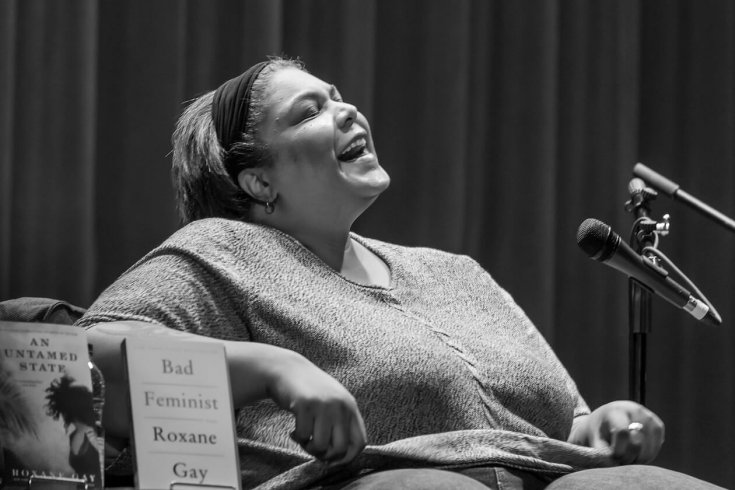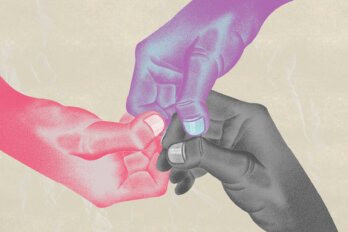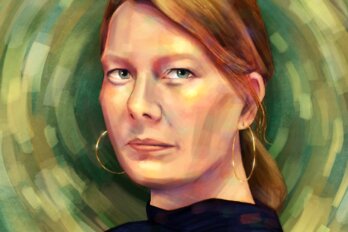The reports of the death of the personal essay continue to be greatly exaggerated. In 1905, a mere three centuries after Michel de Montaigne gave the essay its name, Virginia Woolf lamented its decline in “The Decay of Essay-Writing.” “There are, of course, distinguished people who use this medium from genuine inspiration because it best embodies the soul of their thought,” she wrote. “But, on the other hand, there is a very large number who make the fatal pause, and the mechanical act of writing is allowed to set the brain in motion which should only be accessible to a higher inspiration.” The essay exists on a precipice, in other words. It leans only on the author’s experience and can be easily felled by a lack of rigour.
One hundred and twelve years after Woolf, the death of the personal essay was pronounced once again, this time by Jia Tolentino in a widely read piece in The New Yorker. Aligning with Slate’s Laura Bennett, who wrote in 2015 of the “first-person industrial complex,” Tolentino accused the genre of trafficking in empty, sensational confession that lacked self-awareness or longevity. More recently (and more specifically), in the Boston Review, Merve Emre, an assistant professor in literature at McGill University, referenced Tolentino while eviscerating Indian Canadian author Durga Chew-Bose’s lyrical essay collection Too Much and Not the Mood for “peacocking” but saying nothing. Within the same review, she praised the cool precision of Mary Gaitskill and Deborah Nelson, two authors who happen to be white.
What Emre herself referred to as “the idle chirping of social media” flew not-so-idly her way with a pile of praise—even I congratulated her for voicing what I could not, for decoding a lack of profundity I had hitherto suspected but failed to parse, concluding I was simply too stupid to understand. This may have been one of the reasons few had openly criticized this kind of precious prose in the past, not to mention the social status of the writers who engage in writing such essays, causing peers who question it to do so on the DM so as not to risk their own upward mobility. (Surely, Emre’s position as a Canadian academic outside of New York’s literary circles insulates her, to a degree.) However, it was also noticeable that most of the praise for Emre came from white academics. Only a minority outside of this circle argued that “It” girl Chew-Bose was merely the writer of colour du jour to be sacrificed on the altar of white institutions or that writers like Gaitskill and Nelson were only the latest in a procession of Caucasian intellects.
Positioning Chew-Bose as an author who presents herself “as a more admirably complicated type of human subject than others,” Emre slipped her work into the confessional form of personal essay—a particular sub-genre of the form that Tolentino interred in her New Yorker critique—which she claimed had already “muddied its coattails.” Yet while Emre has an evident distaste for both Chew-Bose’s work and confessional writing, the comparison fell flat—largely because Chew-Bose’s writing is not confessional. She is more concerned, successfully or not, with playing with the form, the words, the sounds, and the movement of a piece to provoke a momentary feeling rather than convey an overall thesis. Chew-Bose is only as confessional as her choice of rhymes is confessional, the personal and critical weaving through them like couplets. Emre’s preference for Gaitskill’s works, “circumspect in their claims to self-knowledge”—as well as her celebration of Nelson’s praise of equally detached white writers—seems more a matter of stylistic preference. In the same critical essay, Emre praised Gaitskill for the very openness she appeared to turn away from when discussing Chew-Bose, calling Gaitskill’s work a “graceful acceptance of psychic irretrievability—the impossibility of knowing what may or may not touch the imagination; what may or may not undo the soul.”
Contemporary confessional writing has mainly been the province of white, middle- to upper-class women such as Emily Gould, Nora Ephron, Meghan Daum, and Sloane Crosley, who observed their lives and lives like theirs. Theirs were bold self disclosures, the “I,” in all its gore, coming first. The style was more plain-spoken, allowing for light humour, irony, lyricism, but principally approachability. Then, around 2008, as Tolentino noted, with the arrival of Gould, the conversation expanded to include more explicit confession, culminating in the publication of essay collections by name authors including Lena Dunham (Not that Kind of Girl) and Lindy West (Shrill). But the conversation was still dominated by white writers who shared a common set of interests. Their essays centred on subjects like gross-out body breakdowns, convoluted sexual relationships, and the peccadilloes of urban life. Tolentino argued that in the wake of the recent election, this sort of personal was no longer political enough to survive. And the argument wasn’t wrong, it was just looking the wrong way.
The personal essay isn’t dead, it’s just no longer white. Three years ago, Haitian American writer Roxane Gay rejuvenated the genre with her bestselling essay collection Bad Feminist. This year has seen the publication of comparable compilations by African American blogger Samantha Irby (We Are Never Meeting in Real Life) and BuzzFeed writer Scaachi Koul (One Day We’ll All Be Dead and None of This Will Matter), a Canadian of Indian descent like Chew-Bose. I do not, however, include Chew-Bose in this trio, although she was published around the same time, because she does not engage in the same graphic self revelation. Rather, the texture of the text takes precedence in her work, not to mention, as Emre observed, she is overtly “apolitical, bereft of any common political or ethical position.” The same cannot be said of Gay, Irby, or Koul. The dismissal of Chew-Bose as a personal essayist, simply for her style and associating her instead with confession, negates the diversity of the genre’s voices, implying that women of colour are one entity that can only do one thing and not particularly well, at that. It says that their refusal to adhere to traditional literary standards, largely defined by white authors, speaks to their inferiority as artists rather than their innovation.
In Slate, Bennett has observed that the one positive outcome of the first-person flood was that the underrepresented were able to ride the wave. The array of perspectives—non-white, non-cis, non-heterosexual, non-wealthy—helped popularize intersectional activism, prioritizing diverse writers who interrogated the culture that refused to recognize them. At Book Riot, a blog that focuses on diverse literature, writer Morgan Jerkins, whose own collection of essays (This Will Be My Undoing) is forthcoming, confirmed that this genre was the one place non-white points of view like hers seemed allowed to exist. “For the most part, many of us have been trained to invoke the voices of dead white writers,” she wrote. “Now, we have the opportunity to recognize and examine our own voices through our lens at our own individual paces.”
That opportunity can be traced back to the first-person wave but also feminism’s fourth wave, in which pioneering personal writing by women of colour resurfaced. Women have long written from a personal perspective, their voices acting as their greatest weapon against oppression. The first examples of literature written by African American women, for instance, emerged from slavery. Harriet Jacobs’s 1861 autobiography, Incidents in the Life of a Slave Girl, exposed her abuse but also her strength. One hundred years of continued oppression later, and the civil rights movement turned writers into fervent activists. At this time, poet Maya Angelou’s editor challenged her to transform autobiography into literature. In response, she used the tools of fiction to construct her 1969 memoir, I Know Why the Caged Bird Sings, into a narrative about racism and trauma told through the experiences of her own life. Emerging from the myopic masculinity of the civil rights movement, black feminism informed activists including Audre Lorde, whose seminal collection Sister Outsider (1984) furiously explores intersectionality and helped form the template for contemporary feminism.
These influences are written all over the current hybridized form of intersectional essays, in which writers of various races, sexualities, genders, and abilities blend criticism, personal essay, and reportage—what better way to reflect their multi-faceted lives? Lorde’s activism, and that of the female writers of colour preceding her, have equally inspired the loud, confident voices and personalities that have commandeered invisible podiums online. More than their writing, it is the charisma of these women, broadcast by social media, that resonates—charisma that infuses their personal essays, parlaying their popularity into bestselling books.
And Roxane Gay is the most charismatic of them all. First published over twenty years ago, Gay only soared to prominence within the past decade when she, like Cheryl Strayed, entered the world of non-fiction. “My life until I began writing essays was a period of silence,” she told Bomb magazine. “I didn’t dare try and use my voice for fear it wouldn’t be heard and for fear of what I might say.” In 2012, before first-person criticism went mainstream, Gay wrote about the power of young women through the prism of The Hunger Games and her own rape at age twelve, including the piece in her 2014 essay collection, Bad Feminist, inspiring many of us to play with personalized critique in a similar way.
“I think, especially in non-fiction writing, it’s demanded that women unburden ourselves, that we splay ourselves open and let you see our bloody guts,” she writes. “But to what end? I’ll show you some of my bloody guts, but there’s going to be, hopefully, when I’m at my best, a larger sense of purpose to the writing. You have to look both inward and outward.” Her book became a bestseller. Deconstructing popular culture and feminism through the intersections of her own life, Gay popularized the form. The tone, however—uplifting verging on evangelical—was familiar, a sort of Oprah for millennials. Because of this, though Gay is a writer first, her insight into the human condition in all its diversity, bolstered by her social media presence, has turned her into something of an inspirational brand. Her writing reflects a set of marginal experiences so rare in popular books that she herself has become an icon of the underrepresented—the same way an actor who plays a rare part becomes indistinguishable from it. It is thus unsurprising that, earlier this month, she launched an advice column at the New York Times. This is testament to the significance of the personal essay resurrected by writers of colour: it is not simply their ownership of the genre that matters but that it imparts on them a power and an authority they have for so long been denied.
Scaachi Koul’s raison d’être is the opposite of Gay’s: it is not succor but discomfort. She established a clear brand of irreverence in Canada—the Land of the Milquetoast—as a strident online voice, tweeting invectives in response to any and all sociopolitical inequities and authoring columns such as “Unfuck Yourself” and “Well That Sucked” at Hazlitt. In her first book, Koul addresses the complexities of her own gender and identity politics, though the abrupt tone that has become her hallmark on Twitter is diluted in long-form, losing much of its punch.
It follows then that the title of the essay collection, One Day We’ll All Be Dead and None of This Will Matter, gets the biggest reaction, hewing with Koul’s terse public persona, an unapologetic subversion of two stereotypes: the innocuous Canadian and the submissive Indian. She dedicates the book to her parents but addresses it to her niece. “It changes you, when you see someone similar to you, doing the thing you might want to do yourself,” she writes. With her, it is less about the writing, more about having written—the act of confession is her activism, a clarion call for other women of colour to see that it is possible and to do the same.
Harking back to the black feminist literary movement preceding them, and indeed reflecting marginal groups as a whole, the new personal essayists form a tight group. Relating to each other’s oft-sidelined experiences, they gravitate together, establishing power in numbers, ensuring they remain visible where they weren’t for so long. Samantha Irby was championed early on by Gay at the Rumpus and the duo, along with Koul, write on similar topics—writ large, the nuances of moving in non-white bodies through a patriarchal society. “I want to go unnoticed. I want to hide. I want to disappear until I gain control of my body,” Gay writes in her new book, Hunger: A Memoir of (My) Body. In a similar vein, Koul explains in her collection, “I still shop to save my soul instead of just to cover my ass, and it typically ends the same way.”
Then there’s Irby. “There’s always some bag of dicks with a beer in his hand, a triple cheeseburger on his plate, and a cigarette in his mouth trying to talk to me about healthy eating,” she writes. Where Gay is the sage and Koul the contrarian, Irby is naked honesty. Her latest book of essays, We Are Never Meeting in Real Life, is all voice. It is disclosure at its juiciest, rich with lurid details and riddled with musically delicious expletives and shambolic jargon, the kind you only use with your friends. “He was sexy and everything,” she writes, “but I mean, he didn’t even know how to CC an e-mail to multiple recipients. I don’t have to be grateful for that shit.” Her confessions about everything from her Crohn’s disease, to the death of her parents, to her obsession with trashy reality television resonate precisely because she is not the ideal confessor.
Irby is not here to give advice or to make the world a better place, she is here to be your sister, whoever you are. Her work recalls that famous quote, often misattributed to C.S. Lewis: “We read to know we’re not alone.” In truth, the quote comes from Shadowlands, a 1993 film based on Lewis’s life, in which a student repeats the line, something his schoolmaster father used to say, to the fictional Lewis. But are those words any less resonant simply because their source is not the authority figure we established years ago? Are they any less meaningful because they have meandered through history, away from their ancestry? Critics who dismiss the voices that speak to the future risk being lost to the past. And writers of colour are the future, transcending everything—outside and inside—but their humanity. “My alarm goes off at 5:50 a.m.,” Irby writes. “First thing I do is check to make sure I’m not dead.” No, you are very much alive.





